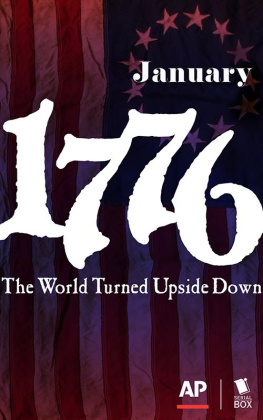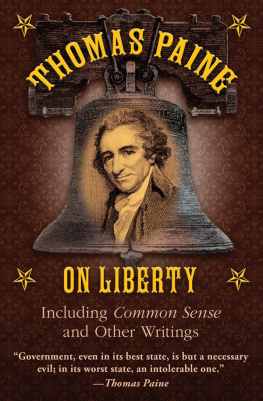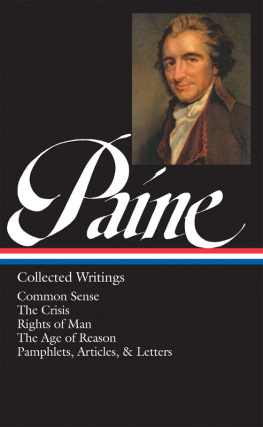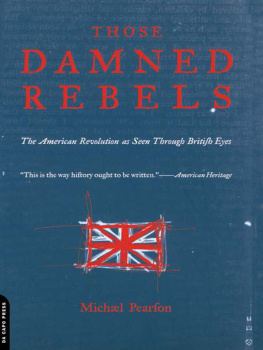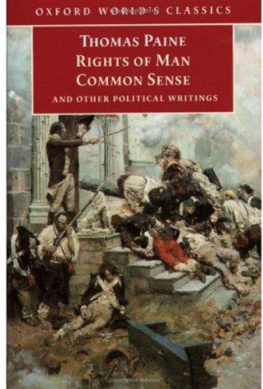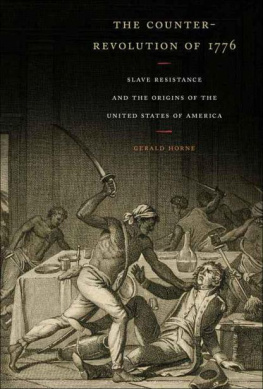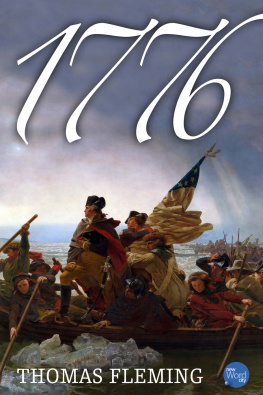1776: The World Turned Upside Down, Episode 1 2018 The Associated Press
All Rights Reserved, including the right of reproduction, in whole or in part, in any audio, electronic, mechanical, physical, or recording format. Updated Serial Box edition published in the United States of America: 2018.
Original hardback edition published in 1975.
For additional information and permission requests, write to the publisher at Serial Box Publishing 222 Broadway, 18th floor, New York, NY, 10038.
Serial Box, Serial Box Publishing, and Join the Plot are trademarks of Serial Box Publishing, LLC.
ISBN: 978-1-68210-230-5
Cover Illustration by: Charles Orr
Lead Writer: The Associated Press
Editor: Prudence Barton, MLS and MEd
Executive Producer: Julian Yap
Executive Producer: Molly Barton
Interior images courtesy the Library of Congress.

Thank you for downloading this episode from Serial Box Publishing.
Please visit us at serialbox.com to never miss an episode!
1776: The World Turned Upside Down
In collaboration with The Associated Press, Serial Box presents 1776: The World Turned Upside Down. Our first nonfiction series tells the month-by-month story of the most important year in American history through the eyes of ordinary citizens failed corset-makers, farmers, and high school dropouts, some of whom became our nations most revered heroes. Letters, news articles, and diary entries from this pivotal year, combined with the insights of three of the AP's top journalists reveal the courage, conviction, fallibility, and sometimes base motives of the people who invented America. From the publishing of Common Sense on January 10th to the battle of Trenton on December 26th, this was the year that America began to form the bold, brave and occasionally infuriating identity that we still know today.
Whos Who
Thomas Paine Failed corset-maker, former tax collector, and author of the pamphlet Common Sense
Benjamin Franklin Satirist, inventor, and diplomat
John Adams Lawyer, revolutionary, and second President of the United States
Benjamin Rush Physician, philosopher, and Philadelphian free-thinker
1776
JANUARY
We must all hang together, or most assuredly we shall all hang separately.
Benjamin Franklin
Setting The Scene
January 1: Four British warships fired on Norfolk, Virginia
January 8: Connecticut troops launch a surprise attack on Charlestown, MA, while British top brass are watching a farce entitled The Blockade at Fanueil Hall.
January 9: An agreement between Britain and Brunswick Wolfenbuettel is signed to provide mercenary troops to the British in North America.
January 10: Knox and his guns reach the heights of the Berkshires.
January 10: In Philadelphia, Common Sense is published.
January 14: Washington writes: Few people know the predicament we are in.
January 16: Washington holds a council of war with Generals Putnam, Ward, Spencer, Sullivan, Greene, Gates, and Heath regarding the importance of taking Boston.
January 17: News arrives at headquarters about American losses at Quebec.
January 18: Knox arrives in Cambridge
The tea had been dumped in Boston Harbor, Paul Revere and four other riders had ridden shouting the famous warning, the Minutemen had rallied at the rude bridge in Concord in 75. On January 1, 1776, a proclamation called for a new kind of soldier: a Continental soldier. The nascent war effort was stumbling with soldiers who slipped away in the night to harvest their crops or visit their girlfriends. Continental Soldier. It sounded grand, promised pay and, the kicker, the soldier served for three straight years, long enough to actually learn military decorum. Symbolically, a Continental Army would pull together the scattershot militias from 13 colonies into a force that just might be able to hold off the redcoats.
Truth be told, the 13 colonies were not a nation at war. Or even a nation. John Adams was to calculate, and later historians were to alter the proportions only somewhat, that one third of Americans were averse to the Revolution An opposite third conceived a hatred of the English [and] the middle third, comprising principally the yeomanry, the soundest part of the nation, and always averse to war, were rather lukewarm and sometimes the whole body united with the first or the last third, according to circumstances.
Emotions were high, but mixed. Ben Franklin said the year before that he had heard no American talk of independence, drunk or sober.
A Virginian wrote to a friend: May God put a speedy and happy end to this contest between the mother and her children. The Colonies do not wish to be independent They would freely grant the King whatever he pleases to request of their own Assemblies, provided the Parliament has no hand in the disposing of it. That was the rub: the King. Angry as many Americans were at his government, they could not translate that fury to George III himself. Even in Boston, where the redcoats of General William Howe had held the city under siege for six months, as late as this very January, the officers in Washingtons mess toasted the Kings health every evening.
Not that there werent some hawks, drunk or sober. In late 1775, the New York Journal reported from Newport, Rhode Island, that: Early last Saturday morning, one Coggeshall, being somewhat drunk or crazy, went on the long wharf and turned up his backside towards the bomb brig in this harbor, using some insulting words, upon which the brig fired two four-pound shot at him; one of which went through the roof of Mr. Hammonds store and lodged in Mr. Samuel Johnsons distill house. Coggeshall was quickly hustled out of town.
The Founding Corset-Maker
Tom Paine had been a dabbler at many things, a failure at all. Some of it he blamed on King George. It rankled even after he left England, so one day he took his quill and decided to put it all down on paper.
On January 9, 1776, in Philadelphia, a pamphlet titled Common Sense was published. It said in public what even most of the red-hot hawks had dared think only to themselves: that the King was a tyrant and the only path for the colonies was independence. It uttered screamed aloud the unutterable. Probably more than any one event, more than any one person, Common Sense made it respectable for the general citizenry of the 13 colonies to conceive that their Revolution would be revolutionary; indeed to think of a communal future in independence.
The anonymously published pamphlet and the mystery of the author stoked interest. King George III thought Ben Franklin wrote it; others assumed it was John Adams. No, Thomas Paine had, even though he signed it merely, an Englishman. Thomas Jefferson once said Paine was the only writer in America, who can write better than Jefferson himself. That was a signal compliment coming from a college-trained lawyer who was about to do some significant writing of his own. It is even more surprising considering that Paine was a dropout from school, who failed twice as a corset-maker, twice as a tax collector, had two failed marriages, and was now on his second country, having been in the colonies less than two years. He had not yet dropped out of writing because he had scarcely ever done any. But, he scored a hit almost the first time out.
Tom Paine was 37 when he arrived in Philadelphia in November 1774, bearing a recommendation from Benjamin Franklin, a first-class boat ticket and strong opinions about George III. He had been born in Thetford, north of London, where he may have imbibed some views of democracy in Georgian England. Thetford had 2,000 inhabitants and two members in Parliament although only 31 citizens were eligible to vote for them. For Paines father, religion and profession were equally straight-laced: Quakerism and corset making. By scrimping, the father managed to send the son to school for seven years, but Tom was weak in Latin, the requisite passport into the professions. He had, however, developed an interest in the natural history of Virginia and ran off to sea, leaving his apprenticeship behind. His father caught him before the boat could sail, but Tom got away again, this time successfully. He next appeared as a journeyman corset-maker in London, age 20, and eventually drifted to Sandwich, setting himself up in the girdle business with a 10 loan, which he never repaid. Disgusted with the toil and little gain, Paine, now a widower, bade farewell to corsets for good and became an excise tax collector.

